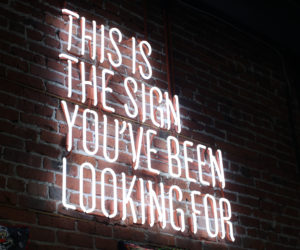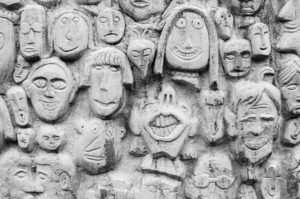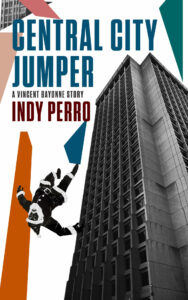Working with an editor can be a difficult aspect of a writer’s social life.
Most artists have a voice in the back of their head telling them they aren’t good enough. That voice grows out of the desire to express something at the margins of what can be expressed, the limit of the writer’s voice. We writers turn to editors when we don’t know the next step we need to take, when we can’t see our mistakes, and when we need another voice to shake us out of our malaise.
Editors, like writers, are only human.
Many editors understand their job to be critiquing a writer’s work. Like many teachers who teach to have students, an editor might not feel as though she has done her job if she isn’t pointing out an issue or spotting a problem. In other words, editors, like all of us, have a unique perspective: their own.
Is it reasonable to expect an editor to understand what the writer is trying to do with their words, what the writer is, in fact, doing, and to connect those two points?
In my experience, that’s too much to ask of someone, anyone else.
Editors have too many irons in the fire, too many demands on their time, and they, like all of us, have been shaped by what they do every day.
Editors critique.
“The value in working with an editor is the change the editing process creates in the writer.”
It’s the writer’s job to move from the potential in their work to the realization of their goals by analyzing the responses of their editors. Editors provide the step, the outside perspectives that give a writer a foothold, something to cling to as they juggle ideas. It’s up to the writers to put their weight on the step and continue to rise.
I’m not talking about a line edit. Every writer needs a line edit, and it should be a pretty straightforward process when it comes to that. Some mistakes we correct in our minds no matter how many times we see them. The rest we should’ve caught.
I’m talking about the writer working at the edge of his limits, struggling to bring a story or idea to life. Editors, who don’t completely understand the project, can help a writer understand the project if the writer takes responsibility for the work and what they receive from the process of editing.
The value in working with an editor is the change the editing process creates in the writer.
An editor’s comments only matter if they affect how the writer perceives her work. It’s never personal, no matter how much it may sting. The editor’s job is to provide the writer with another perspective. The writer makes that perspective productive.
Image by Austin Chan courtesy of Unsplash
Have you ever worked with an editor who didn’t understand your work only for you to realize why they didn’t understand? Did seeing it from their perspective help? Join the conversation and share your experience below.






4 thoughts on “Handling Criticism as a Writer”
I worked with an editor who criticized a scene about drug addicts playing a board game. Apparently he thought addicts couldn’t play the game of life even though I actually saw this happen. He brought expectations to my scene that I felt were unreasonable.
Hi Dan,
I’ve experienced something similar, for sure. Some people won’t get what a writer’s trying to do, and there’s not much any of us can do about it. In specific reference to the example you gave, you might need to reshape expectations through your work. We don’t always know what we like, but we like what we know. We struggle to like something new until we know it. Showing something new, providing a unique experience, can make a reader squirm (in a good way, I think). Editors, particularly, don’t always have time to digest the full experience. Good for you for sticking to your guns. Well done.
Best,
Indy Perro
Great article. Particularly liked: “The editor’s job is to provide the writer with another perspective. The writer makes that perspective productive.” This really resonated with me. I have been an editor and understand a tentative approach is needed with any written work because you risk destroying the writer’s real ‘story’ or perspective. But as a writer I also try to be open to new insights and suggestions to keep my own perspective broad and fresh! Easier said than done though…
You make great points! As artists, we walk a razor’s edge. Even in our own minds, we need our internal editor to take us to task and help us improve, but we also need to nurture and develop our inner children, the inquisitive, open, creative aspects of our psyches that fuel our work.